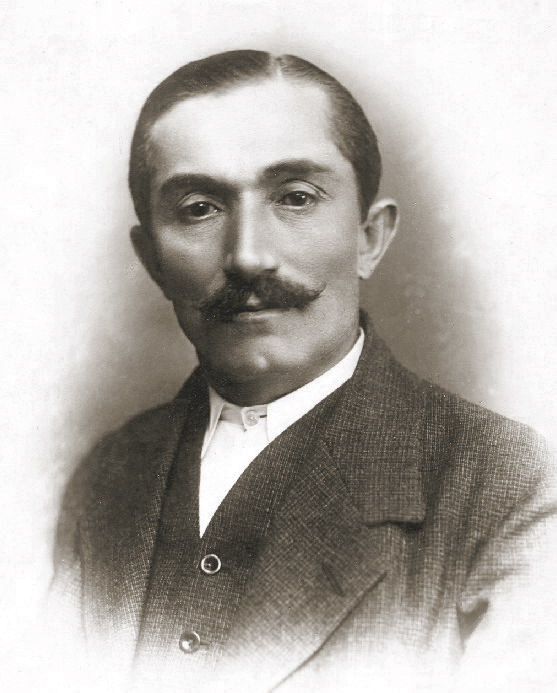There are many opinions on who and what contributed most to Poland’s independence. Certainly, the leaders of the parties striving for the rebirth of the Polish state had a significant influence on this process. Wincenty Witos is rightly considered to be one of the Fathers of Polish independence.
The future politician was born on 21 January 1874 in the small Małopolska commune of Wierzchosławice. Despite the financial difficulties of his peasant family, he received a basic education, showing above-average intelligence and thirst for knowledge. Although his education lasted only “four winters”, it instilled in Witos a lifelong love of books. He spent his youth helping his father with farm duties and working in the surrounding forests. As an Austro-Hungarian citizen (Poland was under partition until 1918), Witos had to do his military service from 1895 to 1897.
In 1892, he started writing for the editorial board of “People’s Friend” (Przyjaciel Ludu), a radical newspaper promoting the postulates of the peasant movement. The beginnings of Witos’s political career coincided with the development of this formation in Poland. Witos opposed the unjust policy of the councillors of his commune, carried out with the support of the priests and the local gentry. Witos’s father was elected to the commune council in 1893, and he himself, after returning from the army, consistently combined his farming duties with socio-political activity. In 1908, he achieved a smashing success locally, leading the council to be dominated by the People’s Party. He accepted the post of alderman, which he remained, despite his later premiership and other posts, until 1931.
Witos began his political large- scale activity by joining the People’s Party immediately after its formation in Rzeszów in 1895 (from 1903 the party was called the Polish People’s Party). He quickly gained recognition, and after 4 years gained a place on the party’s general council. Within it, he was involved in work in the Tarnów district, where he managed to weaken political opponents and organise several facilities for peasants. In the 1908 elections. Witos got elected to the Galician Sejm without much trouble, which allowed him to present himself in a larger forum. At that time, both the political direction of the party and Witos himself, who had lost faith in the possibility of Polish-Ukrainian cooperation in eastern Małopolska, were being formed. Shortly afterwards, elections to the Austrian Sejm were called, in which Witos was also elected MP.
The peasants’ trust in the daring activist grew steadily. Witos, having no confidence in the previous leader of the PSL, supported the split among the peasants in 1914, and joined the Polish People’s Party “Piast”. The new party was genuinely supposed to be concerned with peasants’ interests, and to strive to regain Poland’s independence.
During the years of the First World War, Witos became a member of the Supreme National Committee, to which he convinced the peasants. He consistently supported the aspiration for Poles to have their own state and protested against the surrender of Galicia’s territories to the Ukrainians and the Austrians’ negotiations with the Bolsheviks. 28 October 1918. Witos became chairman of the Polish Liquidation Commission, which soon gained power in the western part of Małopolska, before handing it over to Warsaw.
The next challenge for the forming Polish state was the struggle for borders and the Soviet invasion from the East. During the crucial moment of the Polish-Bolshevik war, Witos accepted the post of Prime Minister in the Government of National Defence, which helped to mobilise the peasants and prevent panic in society and enabled the civilian population to be properly used for defence. Witos personally visited the front and boosted the morale of the defenders of the homeland at a critical moment in the war.
In the interwar period, Witos was Prime Minister for most of 1923, when he had to face a gigantic economic crisis. On 10 May 1926, he became Prime Minister for the third and final time, which lasted only a few days and ended in the May Coup.
Before the 1931 elections, Witos, as one of the opposition leaders, was arrested and sentenced to a year and a half in prison and 3 years’ deprivation of public rights in the Brest trial. The politician did not serve his sentence because he decided to emigrate to Czechoslovakia, from where he continued to influence Polish political life. After the German army occupied Czechoslovakia, he returned to the country, receiving a six-month postponement of his sentence.
During World War II, Witos did not take up public office, despite proposals from both the Germans and the Polish underground. He died in Kraków on 31 October 1945 because of illness.
On the occasion of his 150th birthday, the Sejm of the Republic of Poland established 2024 as the Year of Wincenty Witos.





